Finding the WHO, WHAT & WHEN in audio
Oxford Wave Research (OWR) is a leading R&D company based in Oxford, UK, specialising in audio and speech processing, voice biometrics and deep learning-related product development. Our team has many years of experience developing solutions for law enforcement, military as well as other agencies both in the UK and around the world.
Join Us for "Automatic Speaker Recognition: Getting Started for Research" Workshop

Date: Thursday 16th & Friday 17th January 2025
Location: University of York (In-person)
Are you a research student interested in forensic speech science or automatic speaker recognition? Then this hands-on workshop hosted in collaboration with the York Forensic Speech Science Team is the perfect opportunity to learn more about how automatic speaker recognition systems work, explore their applications in forensic casework, and get practical experience using our software VOCALISE.
Over the course of two days, you will gain insights into pre-processing, feature extraction, speaker modelling, scoring, and calibration in a mix of theoretical and practical sessions. Additionally, you will be able to develop research questions and conduct tests relevant to your research.
Who is this for?
Current Masters or PhD students interested in automatic speaker recognition systems.
Sign up now to secure your spot!
https://docs.google.com/
For more information: https://www.york.ac.uk/
OWR’s audio deepfake technology aces the UK Home Office-led ‘Deepfake Detection Challenge’
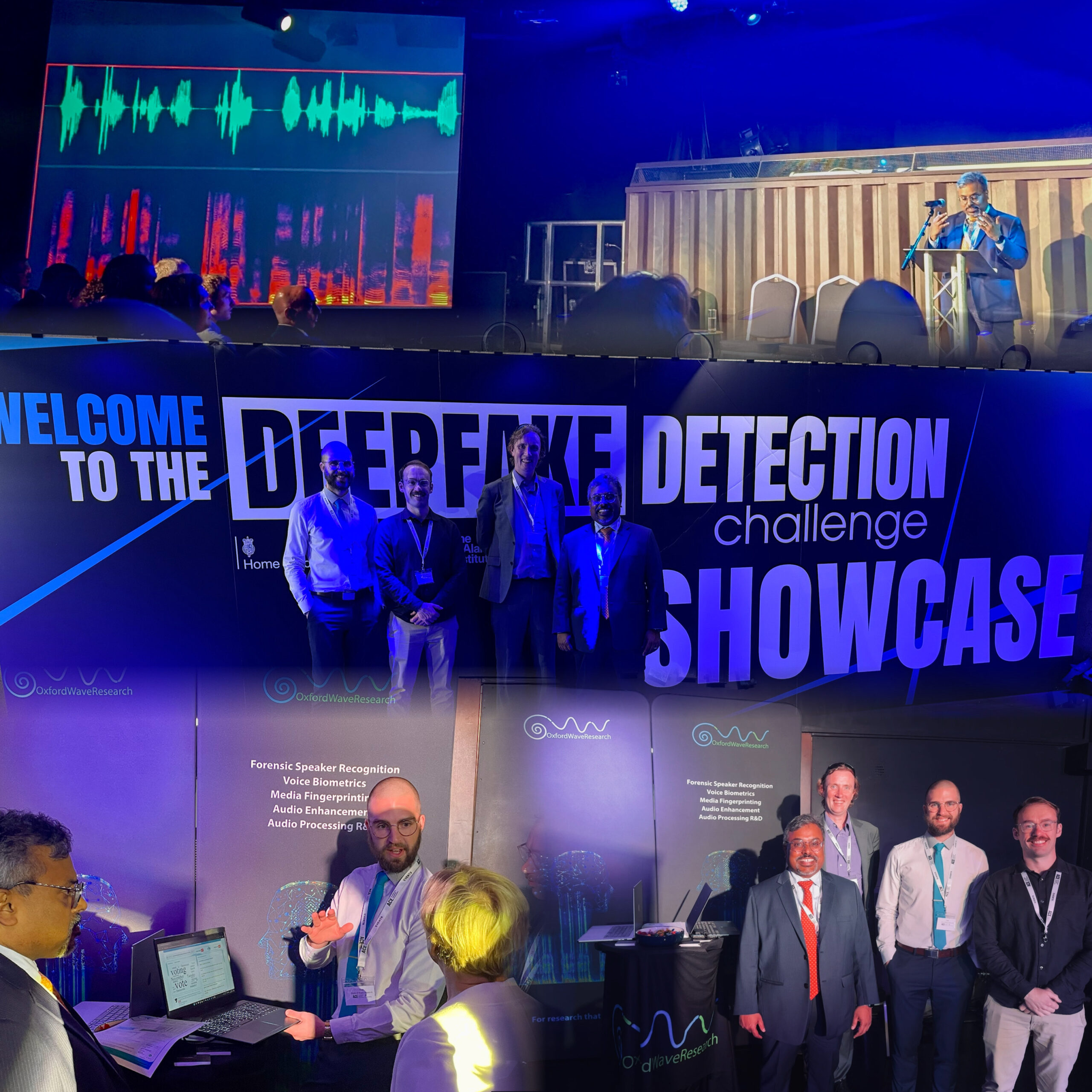 Oxford Wave Research’s audio deepfake detection technology excelled in the Home Office-led ‘Deepfake Detection Challenge’. We topped the competition leader board for audio in the challenge determining which elements of a digital asset are deepfake. The challenge, open to UK companies, universities and researchers, required processing millions of deepfake and real images, audio and video files to build and test deepfake detection technology solutions. The Home Office, The Alan Turing Institute and the Department for Science, Innovation and Technology created this challenge and sought to seek out ‘the best of the best’ in innovative solutions to tackle the current and emerging threats presented by the increasing use of deepfakes. We competed in the audio category and were thrilled with our near perfect performance. Along with five other organisations, we were invited to showcase and discuss our solution at the Deepfake Detection Challenge Showcase event at the iconic Ministry of Sound venue in London in July. Our R&D team has been working on voice cloning and audio deepfake detection for several years now, as we believe recent developments in voice cloning will fundamentally impact fraud, terrorism, sexual exploitation, and political disinformation. We were delighted, therefore, that our solution was able to perform so well with the challenge data. We had the privilege of meeting Baroness Jones of Whitchurch (Parliamentary Under-Secretary of State at the Department for Science) with whom we had a very engaging discussion and demonstration of our audio deepfake detection technology. We were very pleased to listen to talks from Rupert Shute (Home Office, Deputy Chief Scientific Adviser), Talitha Rowland (Director, Security & Online Harms, Department for Science, Innovation and Technology), and Professor Jennifer Rubin (Home Office, Chief Scientific Adviser), which highlighted the problems and the need for solutions to combat these threats. We would like to thank Andrew Tyeloo and the Vivace team, the Department for Science, Innovation and Technology, The Alan Turing Institute, and all those who played a part in putting together this fantastic challenge. For a detailed account of the showcase and the ground-breaking solutions presented, read the full blog here and here (LinkedIn).
Oxford Wave Research’s audio deepfake detection technology excelled in the Home Office-led ‘Deepfake Detection Challenge’. We topped the competition leader board for audio in the challenge determining which elements of a digital asset are deepfake. The challenge, open to UK companies, universities and researchers, required processing millions of deepfake and real images, audio and video files to build and test deepfake detection technology solutions. The Home Office, The Alan Turing Institute and the Department for Science, Innovation and Technology created this challenge and sought to seek out ‘the best of the best’ in innovative solutions to tackle the current and emerging threats presented by the increasing use of deepfakes. We competed in the audio category and were thrilled with our near perfect performance. Along with five other organisations, we were invited to showcase and discuss our solution at the Deepfake Detection Challenge Showcase event at the iconic Ministry of Sound venue in London in July. Our R&D team has been working on voice cloning and audio deepfake detection for several years now, as we believe recent developments in voice cloning will fundamentally impact fraud, terrorism, sexual exploitation, and political disinformation. We were delighted, therefore, that our solution was able to perform so well with the challenge data. We had the privilege of meeting Baroness Jones of Whitchurch (Parliamentary Under-Secretary of State at the Department for Science) with whom we had a very engaging discussion and demonstration of our audio deepfake detection technology. We were very pleased to listen to talks from Rupert Shute (Home Office, Deputy Chief Scientific Adviser), Talitha Rowland (Director, Security & Online Harms, Department for Science, Innovation and Technology), and Professor Jennifer Rubin (Home Office, Chief Scientific Adviser), which highlighted the problems and the need for solutions to combat these threats. We would like to thank Andrew Tyeloo and the Vivace team, the Department for Science, Innovation and Technology, The Alan Turing Institute, and all those who played a part in putting together this fantastic challenge. For a detailed account of the showcase and the ground-breaking solutions presented, read the full blog here and here (LinkedIn).
Dr Anil Alexander speaking at the Royal Society's "Science in the Interests of Justice" Conference
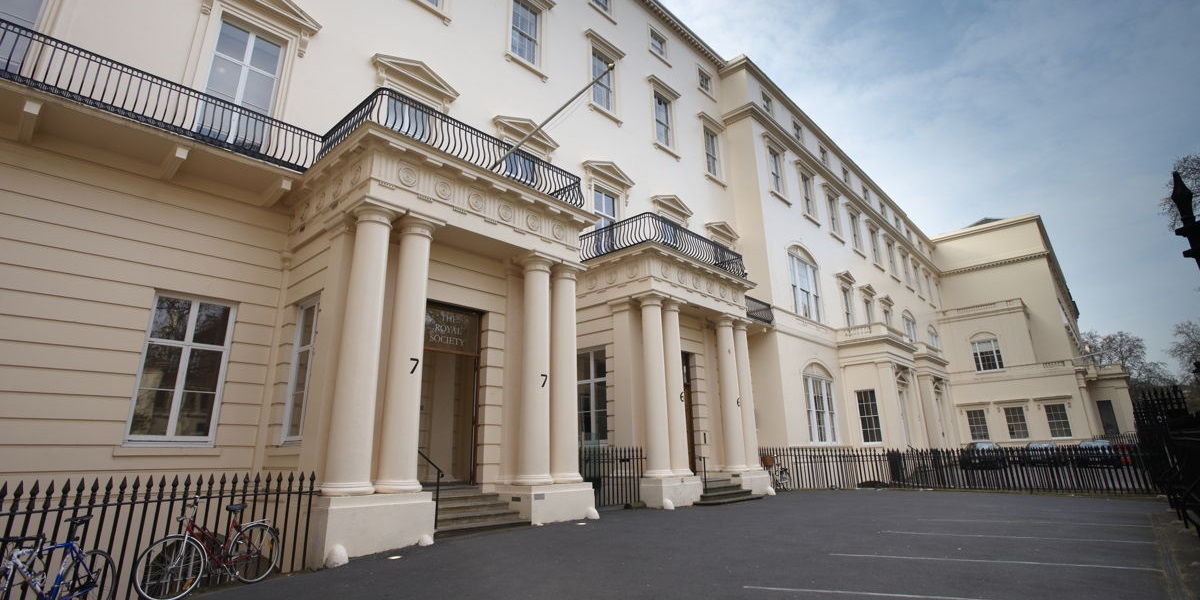 Our CEO, Dr Anil Alexander is speaking at the Royal Society, one of the world’s most prestigious and oldest scientific academies, on the topic of voice recognition in forensic science. Dr Anil Alexander will be one of the invited speakers at the "Science in the Interests of Justice" conference, taking place on October 3-4, 2023. This is co-organised by the Royal Society and the National Academy of Sciences as part of their Science and Law programmes and brings together top scientists and legal experts from both sides of the Atlantic to explore the crucial role of science in the judicial system. If you would like to be virtually part of this event, you can still secure a spot and attend online using the link below: https://royalsociety.org/
Our CEO, Dr Anil Alexander is speaking at the Royal Society, one of the world’s most prestigious and oldest scientific academies, on the topic of voice recognition in forensic science. Dr Anil Alexander will be one of the invited speakers at the "Science in the Interests of Justice" conference, taking place on October 3-4, 2023. This is co-organised by the Royal Society and the National Academy of Sciences as part of their Science and Law programmes and brings together top scientists and legal experts from both sides of the Atlantic to explore the crucial role of science in the judicial system. If you would like to be virtually part of this event, you can still secure a spot and attend online using the link below: https://royalsociety.org/
Below is the abstract of the talk:
Voice recognition is the process by which distinctive characteristics of an individual's speech are used to identify or verify who they are. As lay listeners, humans recognise familiar voices intuitively in an everyday sense and may also find themselves being 'earwitnesses' to a crime, albeit rarely. When carried out by trained practitioners using specialised methodologies and tools, voice recognition, comparing often unknown speech samples, can play an important role in investigative and forensic contexts.
This talk will consider the landscape of forensic voice recognition, encompassing auditory analysis by trained listeners, acoustic-phonetic measurements of perceptually salient features, and automatic speaker recognition using signal processing and modelling algorithms that are statistical or based on deep neural networks. The Bayesian likelihood ratio framework will be critically examined as a means of evaluating the strength of evidence using any voice analysis methodology. The importance of validation of the prevalent and emerging approaches, to understand their limitations and to provide reliable and transparent reports to the courts, will be discussed.
Additionally, the varying acceptance of voice recognition evidence in different parts of the world will be explored. Anticipating the new challenges posed by machine-created spoofed speech, this talk also will reflect on the risks, mitigations and, more optimistically, emerging opportunities afforded by using both human- and machine-based analysis.
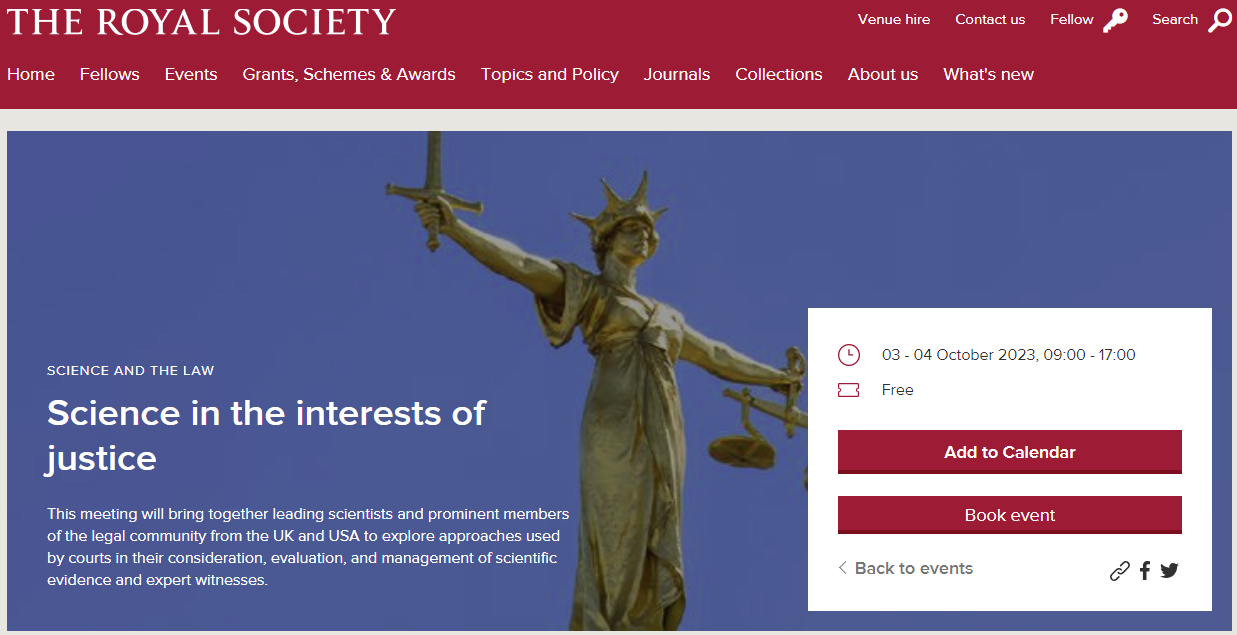
Oxford Wave Research Team Ready for IAFPA 2023 Conference
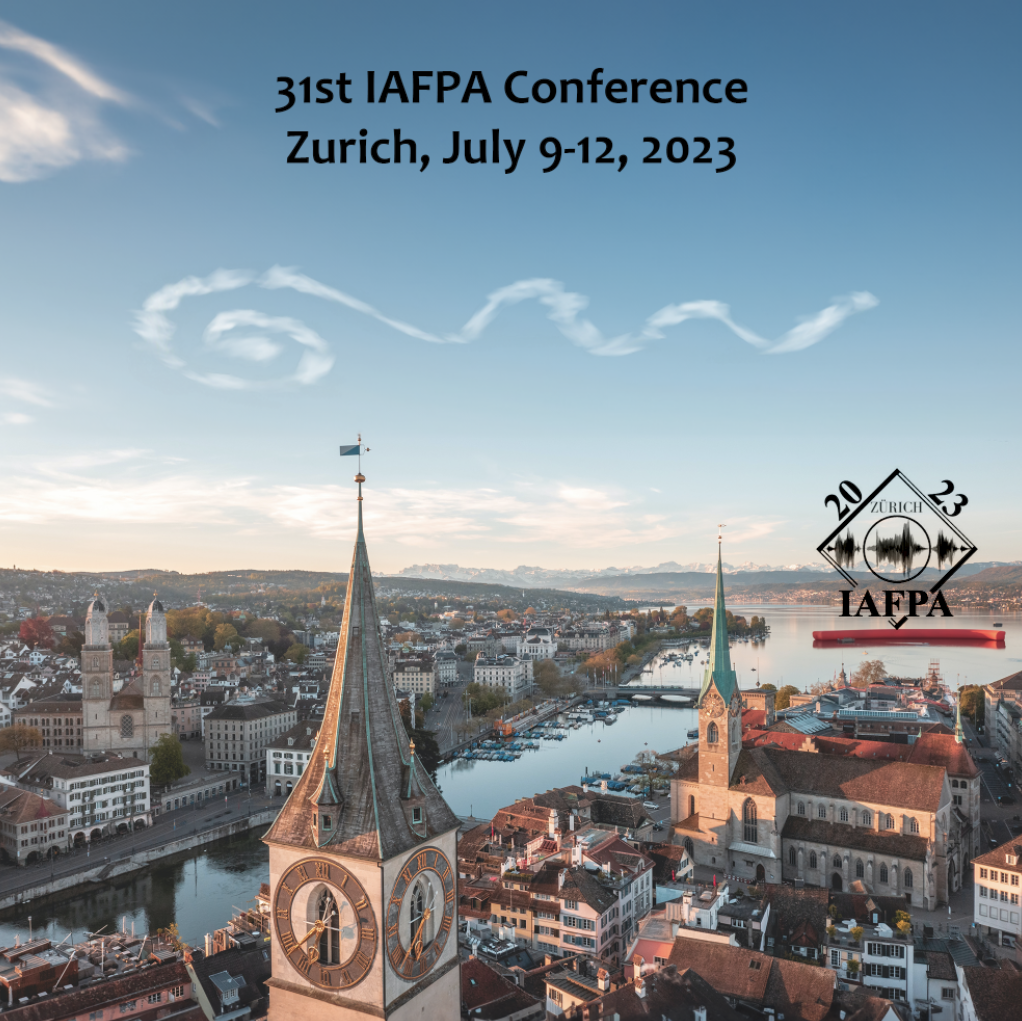 Oxford Wave Research staff are very excited to be attending the upcoming International Association of Forensic Phonetics and Acoustics (IAFPA) Conference, organised this year by the Centre for Forensic Phonetics and Acoustics (CFPA) at the University of Zurich and the Zurich Forensic Science Institute (FOR). We will be presenting a number of papers on our most recent work in the field of voice biometrics and audio processing. Have a look at the list of the presentations co-authored by the OWR researchers in collaboration with distinguished academicians and forensic scientists below:
Oxford Wave Research staff are very excited to be attending the upcoming International Association of Forensic Phonetics and Acoustics (IAFPA) Conference, organised this year by the Centre for Forensic Phonetics and Acoustics (CFPA) at the University of Zurich and the Zurich Forensic Science Institute (FOR). We will be presenting a number of papers on our most recent work in the field of voice biometrics and audio processing. Have a look at the list of the presentations co-authored by the OWR researchers in collaboration with distinguished academicians and forensic scientists below:
- A convincing voice clone? Automatic voice similarity assessment for synthetic speech samples
Linda Gerlach, Finnian Kelly, Kirsty McDougall, and Anil Alexander- PASS (Phonetic Assessment of Spoofed Speech): Towards a human-expert-based framework for spoofed speech detection
Daniel Denian Lee, Kirsty McDougall, Finnian Kelly, and Anil Alexander- CON(gruence)-plots for assessing agreement between voice comparison systems
Michael Jessen, Anil Alexander, Thomas Coy, Oscar Forth, and Finnian Kelly- Automatic Speaker Recognition: does dialect switching matter?
Marlon Siewert, Linda Gerlach, Anil Alexander, Gea de Jong-Lendle, Alfred Lameli, and Roland Kehrein- Impact of the mismatches in long-term acoustic features upon different-speaker ASR scores
Chenzi XU, Paul Foulkes, Philip Harrison, Vincent Hughes, Poppy Welch, Jessica Wormwald, Finnian Kelly, and David van der Vloed- Effects of vocal variation on the output of an automatic speaker recognition system
Vincent Hughes, Jessica Wormwald, Paul Foulkes, Philip Harrison, Poppy Welch, Chenzi Xu, Finnian Kelly, and David van der Vloed
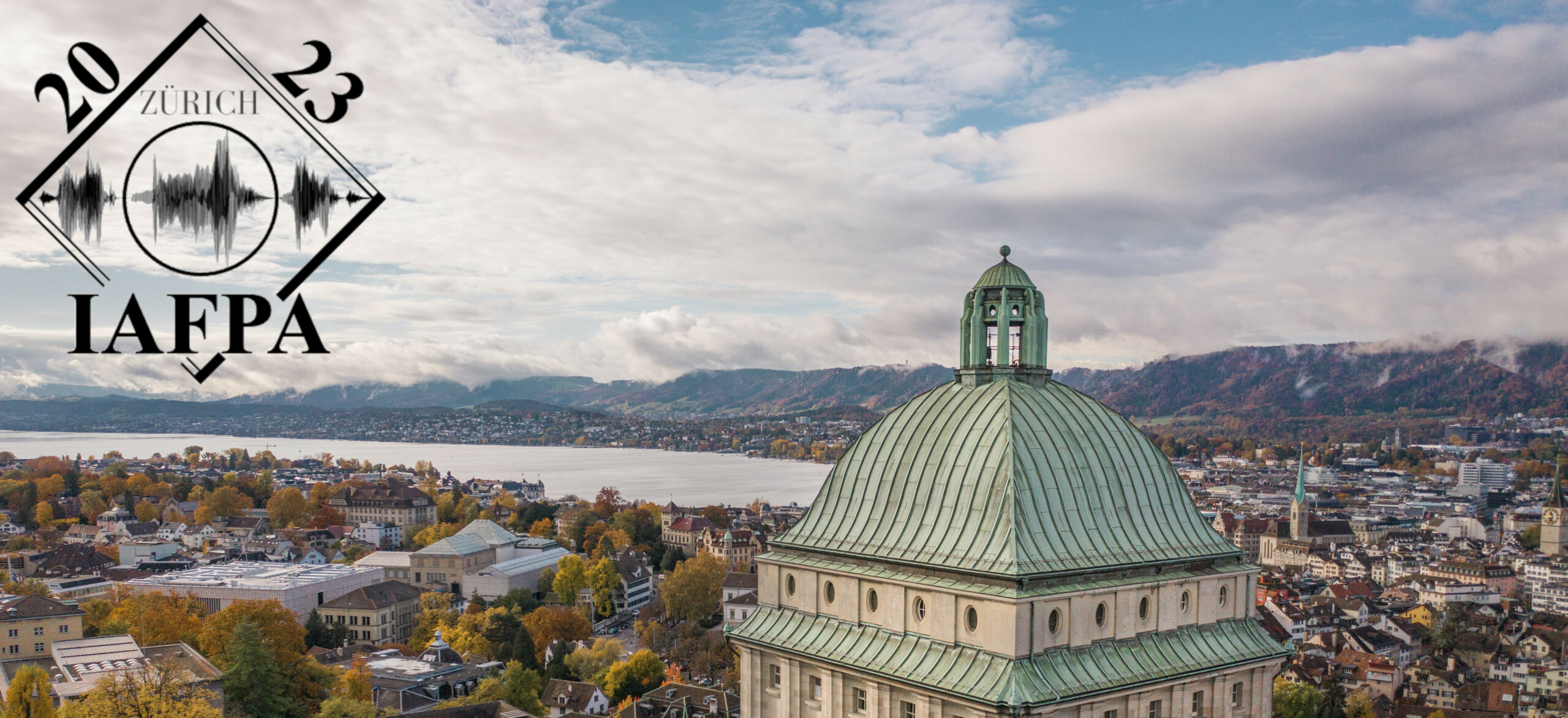
Kicking off VOCALISE training in style at the University of York
The PASR (Person-specific Automatic Speaker Recognition) research team at the University of York rocking the new Oxford Wave Research t-shirts during their training on the VOCALISE forensic speaker recognition system.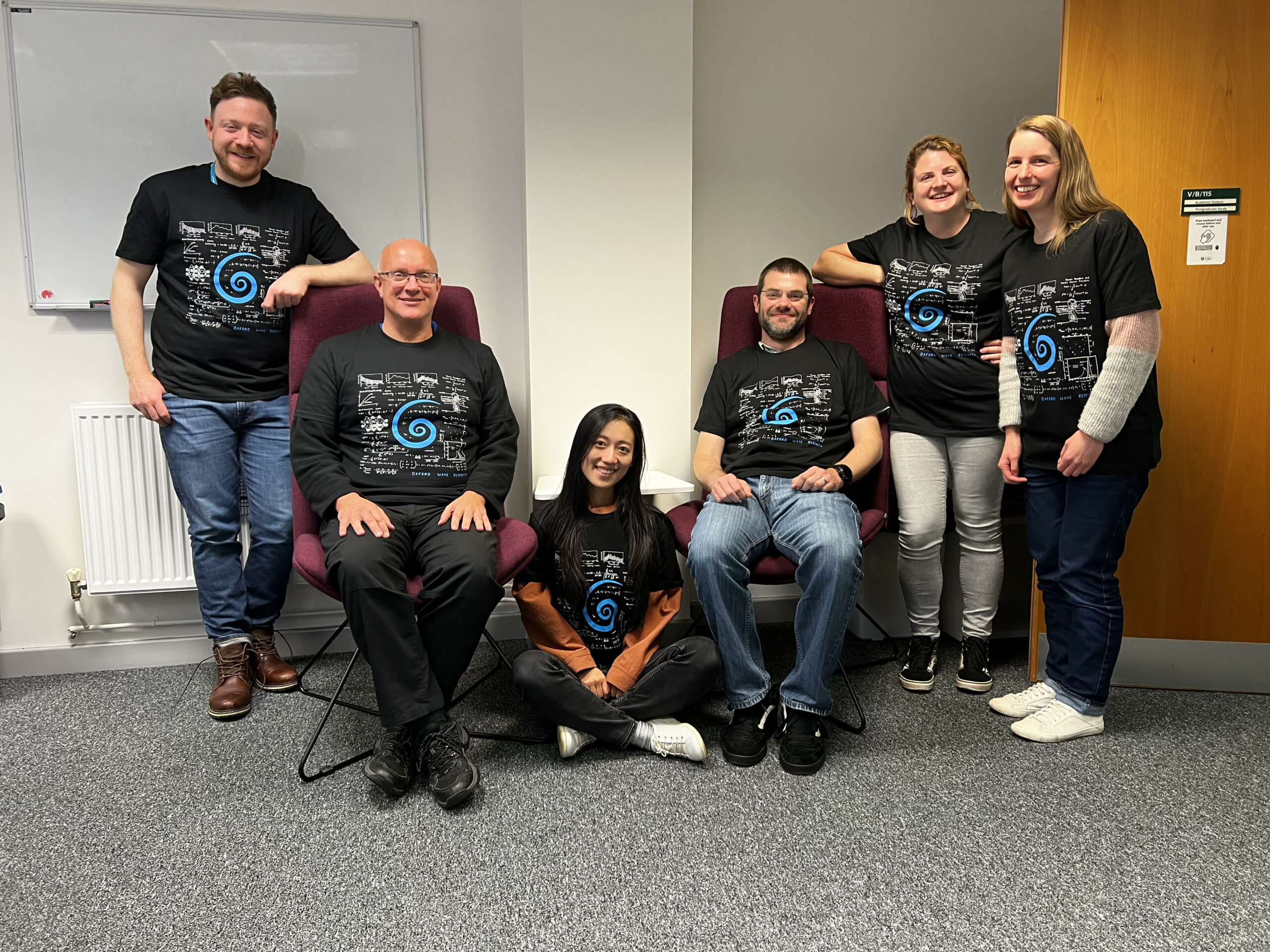
"We’re really pleased to have started the project and to be working with Oxford Wave Research. The VOCALISE software allows us to answer big questions around the use of automatic speaker recognition systems in new and exciting ways. We can’t wait to see what comes out of the work!" Dr Vincent Hughes, Principal Investigator of the project
"We were delighted to be able to spend time with the York University team recently, getting them started with VOCALISE and discussing their exciting plans for the project. They have a really experienced team and have lots of interesting ideas in the works - we are looking forward to seeing where it all goes!" Dr Finnian Kelly, OWR Principal Research Scientist and Lead Scientific advisor on the project






